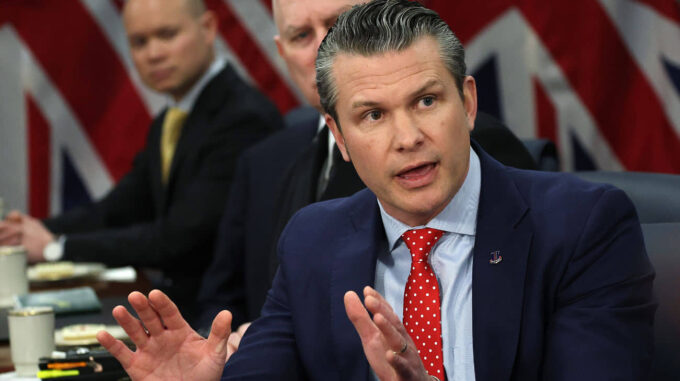The Secretary of Defense of the United States for the first time in three years missed the “Ramstein” meeting: what lies behind this step and what are the consequences

A unique incident occurred for the first time in the history of the international "Ramstein" group — a platform for coordinating military aid to Ukraine, established in late 2020 to unify efforts among the U.S., Europe, and other partners. On Wednesday, May 24, for the first time during its existence, the head of the Pentagon, U.S. Secretary of Defense Lloyd Austin, will not be able to participate in a key meeting that traditionally gathers allies to discuss military support for Ukraine and formulate further assistance steps. This information was reported by the Associated Press, citing sources in diplomatic circles. According to the source, Austin, who had just returned from a national security conference in Singapore, will arrive in Brussels only on Wednesday evening — after the Contact Group’s defense meeting regarding Ukraine has ended. The source specifically noted: "The U.S. Secretary of Defense will not participate in this meeting and will also miss the scheduled video conference, which is quite unusual for such a high-ranking official as he." This fact has caused significant surprise and raised questions about the future course of the U.S. in supporting Ukraine and the geopolitical priorities of the Biden administration. An anonymous source clarified that this step is part of a series of measures aimed at distancing the U.S. from military efforts in its relations with Ukraine. Experts emphasize that such a strategy raises many questions about the future format of international support for Kyiv, as the U.S. is one of the main players in this multilateral coalition. Another important detail is the warning issued by French President Emmanuel Macron on Sunday during a security conference in Singapore. Macron cautioned that the U.S. and other countries risk applying dangerous double standards — focusing their attention and resources on containing China while not considering the scale and importance of support for Ukraine. According to experts, this could lead to a shift in international focus and a reduction in the level of support for Ukraine. Returning to the history of "Ramstein," it is worth noting that the first meeting of this format took place on April 11 in Brussels. It was initiated by the United Kingdom and Germany, which later took the lead in supporting this platform. Previous meetings under Joe Biden’s administration since 2022 were conducted under U.S. chairmanship; however, now there is a trend toward shifting attention — primarily toward NATO summits. The day after the next "Ramstein" meeting — May 25 or 26 — a meeting of NATO defense ministers is scheduled at the Alliance headquarters. This is a key element of preparations for the NATO summit in The Hague, where a strategic program for the coming years will be developed, and the Alliance’s priorities in the context of the security situation — including the war in Ukraine — will be determined. Regarding Ukraine, during the last meeting in Brussels, Ukrainian President Volodymyr Zelensky addressed the participants of "Ramstein," calling for increased support and additional Patriot missile systems in light of intensified Russian strikes. It was then that, besides invitations from Germany and other countries to strengthen air defense capabilities, the issue of Ukraine’s support remained central for global diplomats amid uncertainty about future international assistance. Now, information has emerged indicating that the key player in this global support — the U.S. — is reducing its presence and participation in subsequent discussions. All of this creates a new reality for international support for Ukraine. Does this mean the U.S. is stepping back from active military aid or shifting responsibilities to other countries — remains an open question. But one thing is clear: tensions are rising as efforts are made to find a balance between geopolitical interests, internal priorities, and the need to deter Russian aggression. Overall, the absence or cancellation of U.S. leadership at "Ramstein" sends a signal that world leaders are seeking new approaches to supporting Ukraine, and the times are extremely challenging and unpredictable. We can only watch how these changes will impact future Ukrainian-international cooperation and possible scenarios for the conflict's development on Ukrainian soil.

